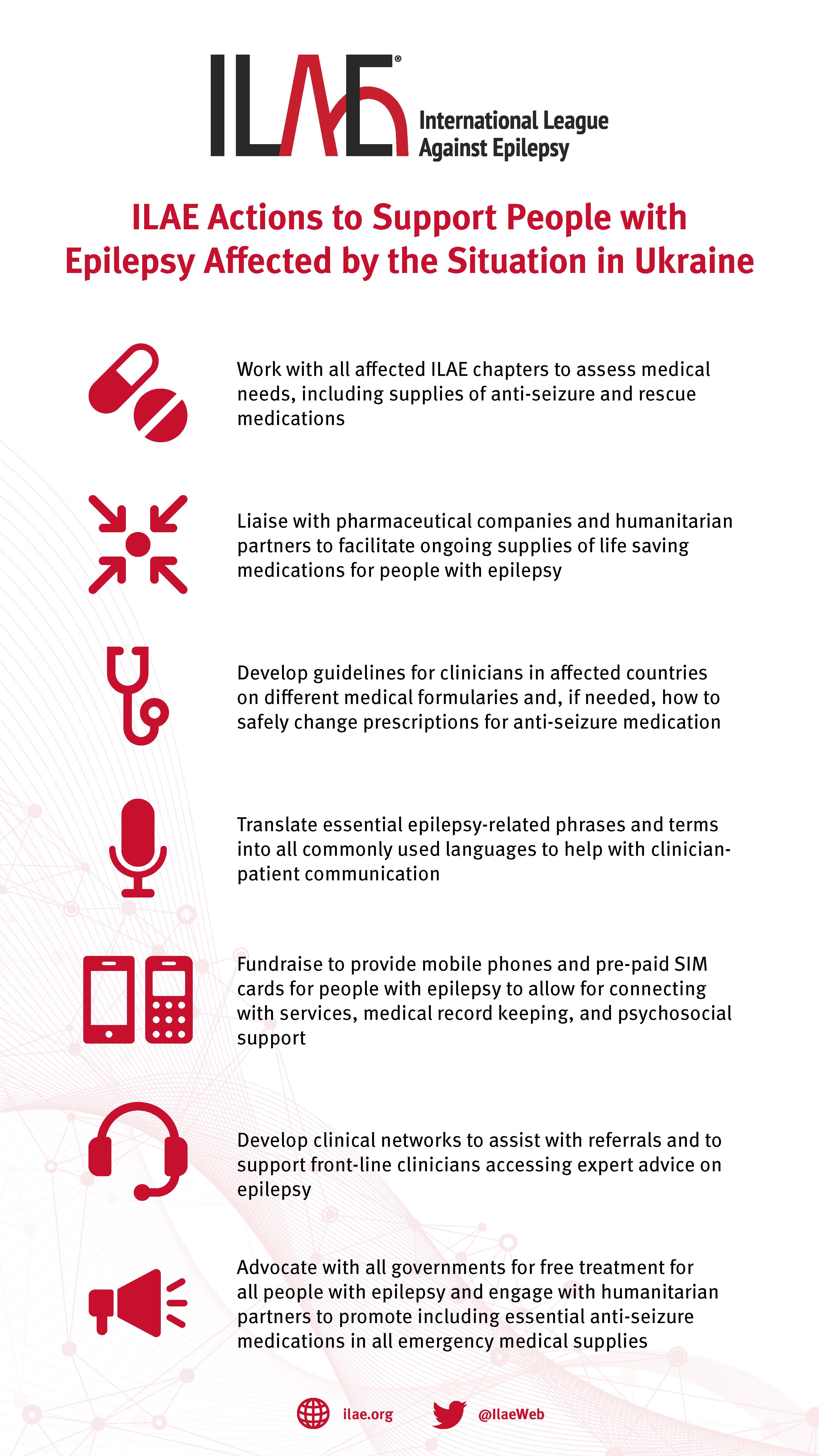Newswise — About 250,000 people in Ukraine have epilepsy, which requires daily medication. But supplies of anti-seizure medications are running low in Ukraine, and nearly 2 million people have fled into neighboring countries, with more likely to follow over the coming weeks.
Seizures are likely to increase
Several factors make it likely that people with epilepsy affected by the situation in Ukraine will experience increases in seizure frequency:
- Lack of anti-seizure medication and abrupt cessation of treatment
- Potential for traumatic head injuries, premature births, and infectious disease outbreaks, which can all lead to seizures
- Lowering of seizure threshold due to stress, sleep deprivation, and hunger
Increase in seizure frequency following major disaster is well documented:
- In 2011, in the eight weeks following the earthquake and subsequent tsunami in Japan, hospitalizations for seizures increased by over 50%.
- In 2017, a 20% rise in seizure presentations was reported in Florida after Hurricane Irma.
- The mortality rate from untreated, prolonged seizures is over 20%.
In addition to anti-seizure medications, people with diagnosed epilepsy require regular contact with health professionals and treatment of associated conditions. Conditions such as depression, anxiety, dementia, migraine, heart disease, and arthritis are up to eight times more common in people with epilepsy than in the general population.
ILAE Actions
On March 7, ILAE held a meeting with leaders from chapters in all countries affected by the situation in Ukraine. The group agreed on a set of seven key actions (see below). ILAE is forming a task force to oversee implementation of these actions, as well as to regularly advise on the unfolding situation.
IBE/ILAE Joint Statement
ILAE and its sister organization, the International Bureau for Epilepsy (IBE), released a statement regarding the situation in Ukraine:
IBE and ILAE work with, and on behalf of, all people with epilepsy – wherever they live in the world – to promote care and treatment, to improve understanding and inclusion, and to address discrimination in all its forms.
ILAE and IBE are concerned about the impact of the current situation in Ukraine on the availability of treatment and access to care for people with epilepsy in the region.
We also know that an increase in seizures and epilepsy is likely as a result of conflict related injuries, infectious disease outbreaks and a rise in premature and complex births.
Additionally, we are concerned about the rights of people with epilepsy who often face increased discrimination, exclusion, and stigma during times of crises.
ILAE and IBE call on authorities and humanitarian responders to ensure uninterrupted supplies of critical and life-saving anti-seizure medicines.
ILAE and IBE urge all to respect the neutrality and sanctity of medical personnel and health facilities during this conflict.
For more information on these initiatives, please contact:
International League Against Epilepsy
International Bureau for Epilepsy
##
Founded in 1909, the International League Against Epilepsy (ILAE) is a global organization with more than 125 national chapters.
Through promoting research, education and training to improve the diagnosis, treatment and prevention of the disease, ILAE is working toward a world where no person’s life is limited by epilepsy.
Website | Facebook | Instagram | YouTube
Twitter: English French Japanese Portuguese Spanish
